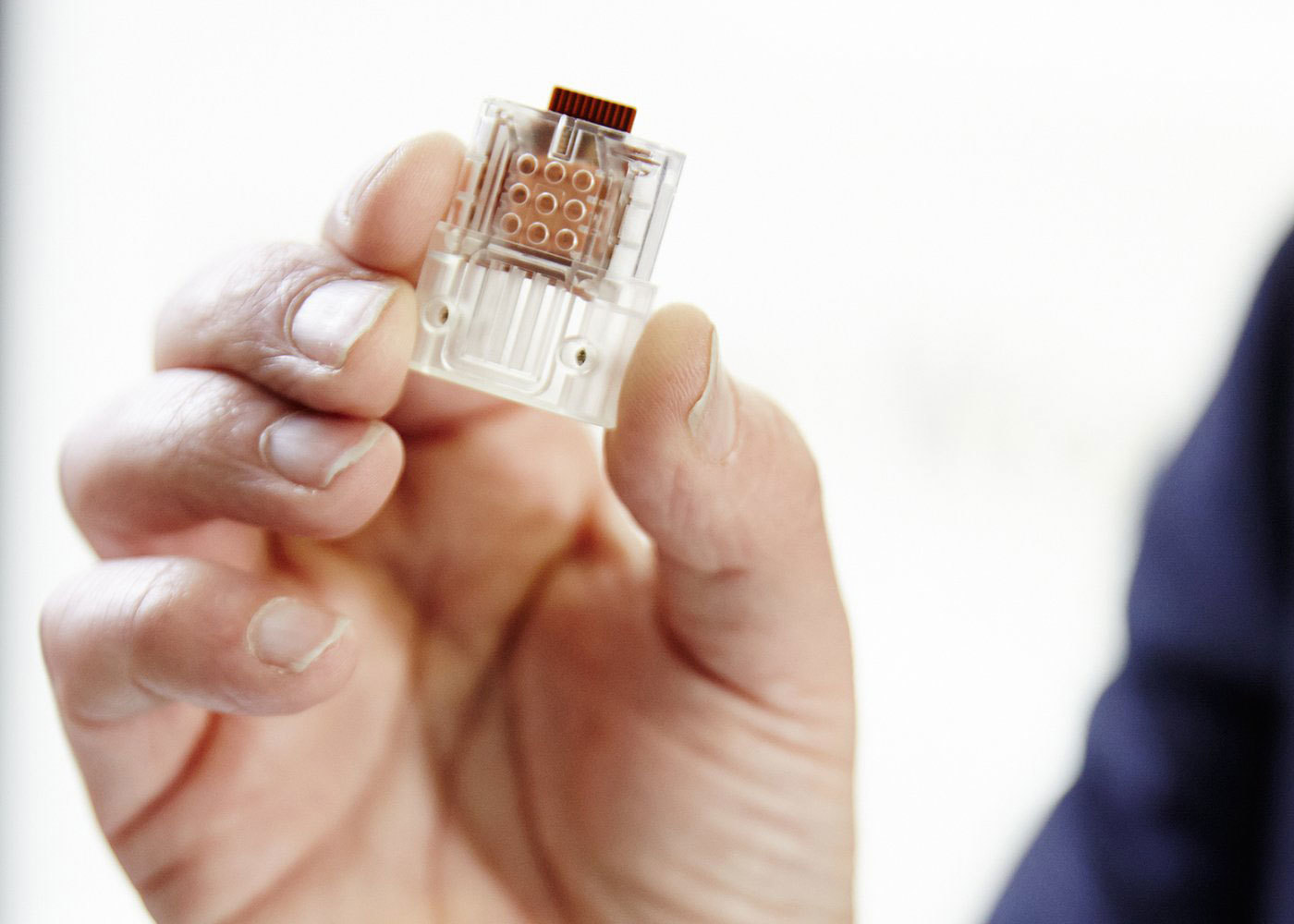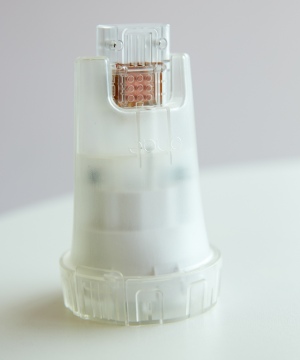A device the size of a flash drive can detect HIV in as little as half an hour

Source: Imperial College London
Specialists from Imperial College London and the company DNA Electronics have developed a portable device that can detect the presence of HIV and the concentration of the virus in a small sample of blood (usually one drop). After analysis, this gadget generates a signal that is transmitted to a PC, laptop or portable device, where this signal is processed by special software.
According to the developers, the device can be used anywhere at any time - both at home and in hospitals located in remote and hard-to-reach regions. The test time is only half an hour or even less. Information about the project is published by the developers in the journal Scientific Reports . Scientists say that the accuracy of determining the presence of HIV in the blood is very high.
New technology allows people to conduct tests on their own. Modern tests are carried out for about three days, often even longer, and require sending blood samples to the laboratory, so time is also spent on transportation. This is far from always possible, since some regions of different countries are located at a considerable distance from the centers where such an analysis is being conducted. Often we are talking about hundreds or even thousands of kilometers. Worst of all, in countries with the highest level of HIV carriers there are no such laboratories at all or there are only a few in the whole country.
')
Timely detection of HIV provides the ability to use methods of treating retrovirus, which significantly reduce its presence in the blood, inhibiting development and activity. In some cases, modern methods of treatment fail - perhaps because the virus produces resistance to drug treatment. The first signal for what happened is the increase in the number of disease viruses in the blood. That is why constant monitoring and analysis are necessary in order to be able to verify the effectiveness of the treatment.
The problem is that most laboratories that can detect the presence of HIV in human blood using antibodies are unable to determine the concentration of viruses. The results of the analysis in such laboratories show only infected people or not. As mentioned above, for patients who are undergoing drug treatment, it is vital to monitor the level of the virus in their blood.
Human immunodeficiency virus infects the cells of the immune system, which have CD4 receptors on their surface: T-helper cells , monocytes , macrophages , Langerhans cells , dendritic cells , microglial cells . As a result, the immune system is inhibited, an acquired immune deficiency syndrome (AIDS) develops, the patient's body loses the ability to defend itself against infections and tumors, secondary opportunistic diseases arise that are not characteristic of people with a normal immune status
Dr. Graham Cook , one of the developers of a portable lab on a chip, says that the effectiveness of HIV treatment has improved dramatically over the past 20 years. Patients with this disease can live without any problems if they constantly take the necessary drugs. Without the necessary treatment, the disease causes the patient to die on average 9–11 years after infection (depending on the subtype of the virus). The average life expectancy at the AIDS stage is about nine months. When conducting antiretroviral therapy, the patient's life expectancy is 70-80 years.
“However, monitoring the concentration of the virus in a person’s blood is critical for effective treatment. Now such an observation often requires considerable time and money. We developed this device, the size of which was originally equal to the size of the copier, and gradually reduced it to the size of a flash drive. "
 The developers claim that now their project is still at the initial stages of development. But now patients can regularly perform tests , observing the number of viruses in their blood. The device can be especially useful in Africa, in poor countries with low levels of medical care. Here, at times, there is no possibility at all to carry out the necessary analyzes.
The developers claim that now their project is still at the initial stages of development. But now patients can regularly perform tests , observing the number of viruses in their blood. The device can be especially useful in Africa, in poor countries with low levels of medical care. Here, at times, there is no possibility at all to carry out the necessary analyzes.The gadget itself uses a chip from a mobile phone. For work he needs only a drop of blood. If the virus is in the blood, it changes the acidity of the sample. The device picks up and sends the appropriate signal. It is received by the manager of the software on a mobile phone or PC. Over the past few months, developers have tested 991 blood samples. The accuracy of the analysis was 95%. The average analysis time is 20.8 minutes.
Now scientists want to modify their lab on a chip so that the device can detect the presence and concentration of other types of viruses in the blood. For example, the hepatitis virus. The authors of the project believe that their work is an excellent example of how a new method of analysis in combination with modern technologies is changing the way that HIV patients are treated, making it possible to conduct a quick, accurate and effective blood test.
Source: https://habr.com/ru/post/399059/
All Articles